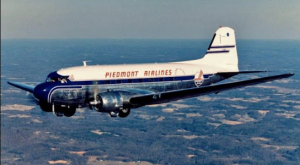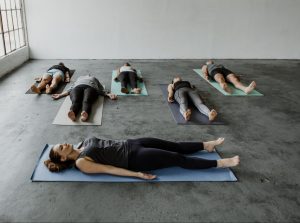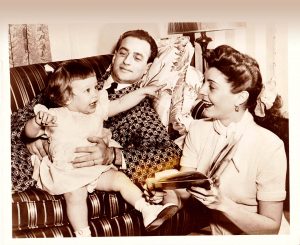
Silence that Speaks
By Jim Dodson
Every year, a dear friend slips away for a three-week retreat into silence and stillness, holing up in a seaside motel somewhere on the Florida coast where he doesn’t know a soul. There he fasts, walks the beach morning and evening, reads nourishing books and practices the art of silence learned years ago from a stay at the Kentucky monastery where mystic Thomas Merton lived and worked. He returns thinner, happier and spiritually refreshed by his “trip to nowhere” as I’ve heard him describe this annual ritual.
The wise among us have long known the value of such a disappearing act, a journey within that clarifies mind, body and soul.
In a world that’s indisputably louder and more distracting than ever, something is always competing for our attention – bills to pay, jobs to finish, candidates hurling insults, terrorists hurling bombs, shouting car salesmen, an Internet that never sleeps, even in the background cacophony of music in restaurants and lawn mowers on Sunday morning…all rob us of something essential.
That essential is what an ancient Sufi poet called “the silence that speaks” and the Book of Common Prayer calls “the peace that passeth understanding.”
To be still and silent, advises the Psalms, is to know God. Chinese sage Lao Tzu insists that stillness reveals eternity. In his recent lovely little book The Art of Stillness, veteran travel writer Pico Iyer relates how a three-day stay at a Benedictine retreat changed his life. “It was a little bit like being called back to somewhere I knew, though I’d never seen the place before,” he writes. “Spending time in silence gave everything else in my days fresh value. It felt as if I was slipping outside my life and ascending a small hill from which I could make out a wider landscape. It was pure joy.”
Before Coronavirus came along to upend all our lives, I sometimes wished that I could find the time and discipline of Pico Iyer and my contemplative friend to escape into self-imposed silence. Now that I have plenty of quiet time at home to work and think about the uncertain days ahead, I realize that it is almost always in the silent moments that accompany stark change that we find new insights and ways of enriching our lives as we move forward. For what it’s worth, I owe this valuable insight to a remarkable winter thirty years ago, a time of stillness and silence that upended and transformed my life for the better.
Here’s my silent winter’s tale, my version of Christmas in July.
On the heels of seven fast-paced years of working for the oldest Sunday magazine in the nation, covering politics and social mayhem across my native New South and never pausing to take a vacation or even a few days off, something made me turn down the important journalism job in Washington D.C. I’d long dreamed of having and – to the shock of my friends and colleagues — uproot to a bend in Vermont’s Green River, where I got myself a golden pup from the local Humane Society and set up housekeeping in a tiny solar cabin heated by only a woodstove and the light of the northern sun.
I swapped chasing politicians and prosecutors for the sound of my boots crunching on a silent snow-covered road with my young dog, or snow-shoeing across the fields to my landlords’ house for weekend suppers and conversation. They were aging hippies who’d grown wealthy by selling chemical toilets to summering New Yorkers. Every supper they served tasted a little bit like sautéd boxwood shrubbery though I’m pretty sure it was healthy eating and they were, in any case, lovely people fully committed to making a better world while matching up their young tenant with suitable female companionship. That winter I went out with women who had more enlightened views and underarm hair than me.
With no TV, phone or radio, however, I spent a lot of time reading and thinking about the point of being alive, marveling how I’d dropped into such a peaceful winter wonderland that allowed me to feel in charge of my own life for the first time in years. My journalism friends were all but certain that I’d “dropped out” to become a hermit.
I probably read or reread at least fifty books that snowy winter of 1984 – The collected works of Yeats and Frost, all of John Updike’s novels, plenty of Shakespeare, the Bagavhad Gita, probably too much LeCarre and Graham Greene, even George Orwell’s 1984 just to see how the world he envisioned worked out. Though I spent my days working as the senior writer for a legendary New England magazine called Yankee, it was the silence and stillness that filled most of my days that changed my life and perhaps even saved it.
That spring, after ice out, I bought myself a secondhand Orvis flyrod and learned the basics of fly-casting from a crusty retired minister I nicknamed “Saint Cecil” who lived down the road and was mad for fishing. I also picked up a used set of good golf clubs and began knocking the rust off my long-neglected golf game at an old club in Brattleboro where Rudyard Kipling reportedly played while finishing his work on the The Jungle Book. Most of these self-tutorials were done solo or with my dog Amos for companionship, a volume of Yeats poetry or E.B. White’s essays tucked neatly into my fishing vest or golf bag.
The sounds I heard were those I made, for the most part — crackling fires, water running over stones, songbirds and wind, the soft crunch of my boots on a snowy road at dusk.
Even the excitement of the quadrennial New Hampshire primary failed to knock a dent in my newfound love of stillness and silence. A string of leading candidates all passed through Yankee’s colorful red barn in Dublin (N.H) that winter but only served to remind the old political junkie in me how grateful I was to have found a very different kind of life in the nick of time.
One quiet morning that autumn, a beautiful young woman wearing well-worn saddle shoes brought the mail to my office. She was the new intern, a recent Wellesley grad, a country girl who grew up in Maine.
On our first date on election night, she asked who I voted for and I told her Walter Mondale. This was untrue. Owing to my quiet life, I’d actually forgotten to register and vote but probably would have voted for Ronald Reagan in those days. I never told her this until after we were married. By then, smart gal, she’d guessed as much.
The next spring, we moved to the end of a road in the salt marsh north of Boston. It was peaceful there too, a world shaped by sea wind, time and tides, a great place to think and write and even get married. There was an older gentleman who lived across the tidal creek. I often saw him at his easel overlooking the marsh. He would wave and I waved back. We never actually met. But we knew each other just the same, befriended by sea wind and silence.
As newlyweds, we moved to Maine and bought land for a house on a hilltop of birch and hemlock, just off the abandoned town road, surrounded by a deep and silent forest. Our first born arrived during a January blizzard. We were living in a cottage on Bailey Island at that time, waiting for spring to start building. The cottage had a 30-mile view of the Maine coast. The only sounds one heard at night were the restless tides, the ceaseless wind and the ping of sailboat masts under the star-studded sky.
The house we built on the hill was a simple salt box affair. I did most of the interior work myself, putting up walls, laying plank floors from a New Hampshire barn and building the kitchen cabinets. My grandfather was a master cabinetmaker, the quietest man I ever met. I felt as though I was channeling his spirit.
It was the absolute stillness of that house I loved most, especially on a frigid winter days as sunlight flooded its rooms and made the golden hemlock beams gently crack as if sighing. The silence was deep, a living presence. It grounded my soul like a spear, as the poet Sidney Lanier once described it.
That house produced plenty of other great sounds over the next two decades – laughter from children and dinner guests, guitars being played, the soft scratch as a pencil marked the growth spurts of our children on the door frame of the utility room, our annual Solstice party that lasted for two decades on the longest night of the year.
I built a massive English garden around that happy house, assuming we would live there forever. I even made a special Philosopher’s garden with a wooden bench where, after yard work, I loved to simply sit and listen to absolutely nothing but the birds and the sounds of the forest around us.
Sometimes I still dream about that house, that garden, that quiet place in the forest – wishing, I suppose, that I could go back and hear those sounds again, feel that golden winter silence, simply be there for a while.
But as Pico Iyer reminds me in his fine little book, the greatest gifts of silence and stillness remind us that “what feels like finding real life, that changeless and inarguable something behind all our shifting thoughts, is less a discovery than a recollection.”
A few years ago, after taking my daughter and her buddies out to supper in their busy but charming Brooklyn neighborhood, I commented to my wife that even a former hermit like me might be able to live in that part of Brooklyn, given its small town feel. Wendy grew up just outside New York City, attended college and worked there for years.
She patted my arm. “I’m sure you could, babe. For at least three or four days.”
The woman knows me well, ruined by the quiet of other worlds. Last autumn she and I went to the mountains two weekends in a row just for the solitude and November light. This summer, we’re headed back to those same mountains so I can frighten a few trout and listen to the silence of the forest.
It’s a voice I never get weary of hearing.





